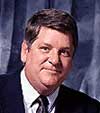Article
2002: A Year in Review
Self-Service emerged as a hot-button topic for those who follow kiosks in 2002, and more of the same is expected next year.
January 12, 2003
The kiosk industry, still feeling its youth and finding its way through a troubled economy, latched on to a new theme in 2002 that could fuel its growth. By adopting the term "self-service" as its own, kiosk-ers began focusing their efforts more on customer convenience in 2002.
Whether the application brings bandwidth to a bookstore, eases the hiring process or helps the hungry order hamburgers, kiosk applications that made life easier for individuals were the ones that made news during the year.
Industry leaders took notice of the trend. Kiosks.org Association, though still in its infancy, formally moved toward a self-service emphasis at its fall meeting. Membership in the organization grew to more than 200, and the KOA board expanded to include more user-members.
 |
Craig Keefner |
Craig Keefner, executive director of KOA, said he believes simply being known as a self-service-focused group will help his organization's reputation.
"The kiosk industry will be better served under the banner of self-service, because that's something corporations understand internally," he said in an October interview (Link: see story "Surge in Self-Service".)
"The word has a technology connotation to it," he said. "It's a public-service device. `Kiosk' doesn't apply as well inside the circle of decision of whether to deploy and how. As a word it is gaining, however, in its use as a term in messages from business to its customers. We can better talk to potential deployers about customers and improving relations with those customers with the name self-service."
In a more recent discussion, Keefner talked about the steps he's already taken toward a self-service mindset. At the Web site, www.selfservice.org, owned by Association parent NetWorld Alliance, Keefner has posted a mission statement for "Self-Service Association." It reads, in part:
"The mission of the Association, the self-service association is to identify and promote the interests of companies engaged in the self-service industry. The Association provides self-service news and kiosk news, Research and Statistics as well as forums for discussing industry issues and best practices."
Keefner exhibits a sense of excitement about the industry's future focus. "Self-service better reflects the current fears and business priorities of members," he said. "As opposed to unique kiosks, self-service should be an integrated philosophy, a component of doing business by enabling the customer."
Of course it wasn't just Keefner who jumped aboard the Self-Service bandwagon in 2002. Here's some other notable news items from the KioskMarketplace archives:
·
Self-Service checkouts, which have gained ground in grocery stores in the last three years, are reaching other retail segments. In November, NCRannounced a rollout to 800 Home Depot stores of its FastLane system. See "How does the future line up for self-service checkouts."·Officials in the United Kingdom announced a requirement that all local governments deliver services electronically by 2005. See "Government gets in the kiosk game in UK"
·7-Eleven expanded its Vcom program. Vcom, a "virtual commerce" financial services kiosk, will be in place in 1,000 stores this spring.. 7-Eleven may add another 2,500 locations later in the year. See "7-Eleven's Vcom wins raves at RD".
·
During October's Interactive Self-Service in Retail conference, held in Phoenix, Info Touch Technologies announced plans to install its Zaplink multi-function kiosks in 500 stores by the second quarter of 2003. The expansion follows a 35-store test in Phoenix in which a bill payment function for wireless phones proved to be the most popular function. See "Retail is the word at Phoenix show."·
Among the self-service applications on display at October's National Association of Convenience Stores exhibition was a touchscreen device from Intermedia Kiosks that allows customers to order and pay for Whoppers and other Burger King menu items. The kiosks were scheduled for a 17-store test in Maryland stores. See "Kiosks by any definition."·Netkeyproduced a Webinar in September entitled "Top 20 Trends for Self-Service" that was extremely popular, according to marketing director Bob Ventresca. "Self-service crosses a lot of boundaries, but it's the business process that's really important," he said. "For our business, it's an evolution and recognition of where we see the market going. We have customers that are using kiosks, but others say they don't need a full-fledged kiosk." See "Surge in Self-Service."
·
A year after the Sept. 11, 2001 tragedy, nearly every airline still in business was in the process of building or expanding its network of check-in kiosks. Southwest Airlines, for example, announced a 250-kiosk, $2 million initiative with IBM Corp. See "Airline kiosks and biometrics: a year later."·In Germany, high-speed access to the Internet is available to citizens free at 150 bars, bistros and coffee shops, thanks to a program from AOL Germany. A year-long advertising campaign will promote the public-use kiosks, which debuted in May. Germany, a hotbed of kiosk activity, is host to several major projects. See "German kiosks: for the public good."
·
About 150 attendees, representing 90 companies and 15 countries, attended the Kiosks Europe 2002 conference in Amsterdam in July. The show, presented by KioskCom, included a presentation on the rollout of 28,000 Web payphones planned during the next five years by British Telecom. See "The two faces of Kiosks Europe 2002."·
Despite lower attendance and exhibitor numbers at the KioskCom 2002 show in Orlando, KioskCom executive director Lawrence Dvorchik viewed a glass that was half-full. "The quality was at an all-time high this year," he said. "One of the figures I got from somebody was that 80 percent of the people they spoke to were qualified leads." See "KioskCom 2002: When less is more."·
The first Interactive Kiosk Excellence Awards, presented at KioskCom, attracted plenty of interest and entries. Winners included St. Clair Interactive, Apunix Computer Services, Kiosk Information Systems, nanonation, Kosmo Studios and Fidelity Investments. Each picked up a trophy at a special presentation in Orlando. See "Honors and Numbers."Those are some of the highlights covered by KioskMarketplace in 2002, culled from more than 600 unique news and feature items produced on the site. In January, we undertook a risky assignment - predicting the future of the industry for 2002.
Our view was that there were two alternatives for 2002 - strong growth vs. sluggish disappointment.
We wrote, "If the economy regains its health and the kiosk industry continues finding dynamic applications, then the future is bright. But if the economy continues to struggle, what is beyond the brink could be very dark indeed."
The final tally for 2002 fell somewhere between those two extremes. Certainly the economy didn't bounce totally back to the boom of 2000, but it didn't totally flounder either. Signs of optimism abound, including the sheer number of rollouts in various stages of deployment and the successes touted by deployers of current projects.
The focus on self-service brings additional excitement for anyone forecasting the industry's fortunes in 2003. Consumer demand makes the move to self-service devices an inevitability in some retail environments, as individuals increasingly come to expect self-service devices in many retail environments.
Keefner, who has followed kiosk developments since starting Kiosks.org in 1993, said the shift to corporatization in the industry was the most significant development in 2002.
"The supply chain is altered, becoming more corporate," he said. "There's a new partner in the supply chain, and that is corporations like Dell, Hewlett-Packard, IBM and Gateway. Historically, people just called in to kiosk companies, but now they're also calling corporations and asking for ideas on kiosks."
Keefner said that means that more kiosk projects are coming to traditional kiosk companies through corporations that already have relationships with the customers, such as retailers. That means that instead of dealing directly with customers, many traditional kiosk companies have become vendors or suppliers to those corporations. And, it could mean more significant projects and kiosk deployments.
As for 2003, Keefner said it should be a big year for the industry, especially as it embraces self-service.
"The self-service angle will increase," he said. "It will become the inflection point at which projects originate. It will be the driver for corporations."
[Editor's note: Info Touch Technologies became Tio Networks in April 2006.]










